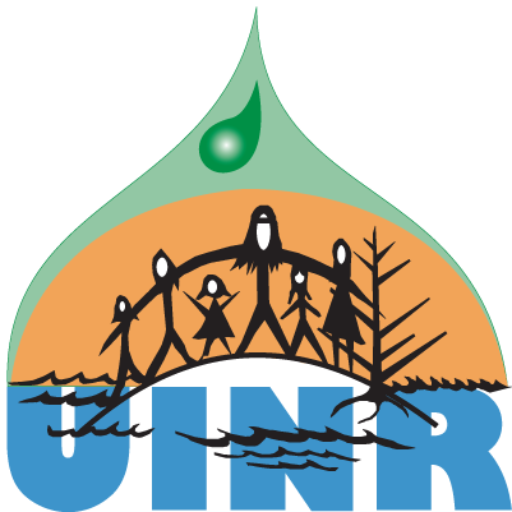Here are two guys that you can’t miss seeing walking around the Coast Guard College in Point Edward! Phillip Prosper, 33 and Tim Cremo, 32 are the first Unama’ki Mi’kmaq Natural Resources Officers to be accepted in a new pilot program, a collaboration between UINR and the Department of Fisheries and Oceans (DFO). The new program is training two Mi’kmaq DFO officers who, upon completion of their training, will be assigned to the Unama’ki region to work on issues of concern to the Mi’kmaq communities.
 Phillip travels to the Coast Guard College every day from Waycobah. He has been a commercial fisherman for the past 17 years, starting at an early age when he reluctantly fished with his father, eventually becoming skipper on a snow crab vessel. “This NRO position is my dream job” he explains. “Because of the ups and downs in the fisheries, I was looking to find something more stable. The only thing I’ve ever been good at is the fisheries” he says, smiling.
Phillip travels to the Coast Guard College every day from Waycobah. He has been a commercial fisherman for the past 17 years, starting at an early age when he reluctantly fished with his father, eventually becoming skipper on a snow crab vessel. “This NRO position is my dream job” he explains. “Because of the ups and downs in the fisheries, I was looking to find something more stable. The only thing I’ve ever been good at is the fisheries” he says, smiling.
Originally from Eskasoni and currently living in Membertou, Tim brings a totally different skill-set to the NRO training. “I have always been interested in law enforcement and this training is exactly what I was looking for. This is an incredible opportunity for a career as opposed to a job.” For the past five years, Tim has been working in security for the Membertou Band Council.
The DFO training is intensive. After six weeks at the Coast Guard College, they move to Chilliwack, BC, where they will continue their training. They will graduate in Regina in mid-May and begin work right away. “From learning about all of the Atlantic fish species, federal acts and regulations, marine emergency, and duties training, the training so far has been very interesting,” Phillip says.
Once they have graduated, Tim expects to be posted in St. Peter’s, and Phillip in Baddeck. Over the next three years, they will continue to take courses and on-the-job training as they patrol the Bras d’Or Lakes.
“Having Mi’kmaq officers will make a big difference,Tim explains. “We expect that people will be a lot calmer, more respectful when they are approached by a fellow Mi’kmaq” Phillip adds, “Speaking the language makes a big difference in communicating to Mi’kmaq people. We see a big part of our job is to educate natives and non-natives alike on the Mi’kmaq food fisheries.”
While Tim and Phillip couldn’t look more different from each other, they share a passion and an interest that will, without a doubt, ensure their success.
blair@uinr.ca
